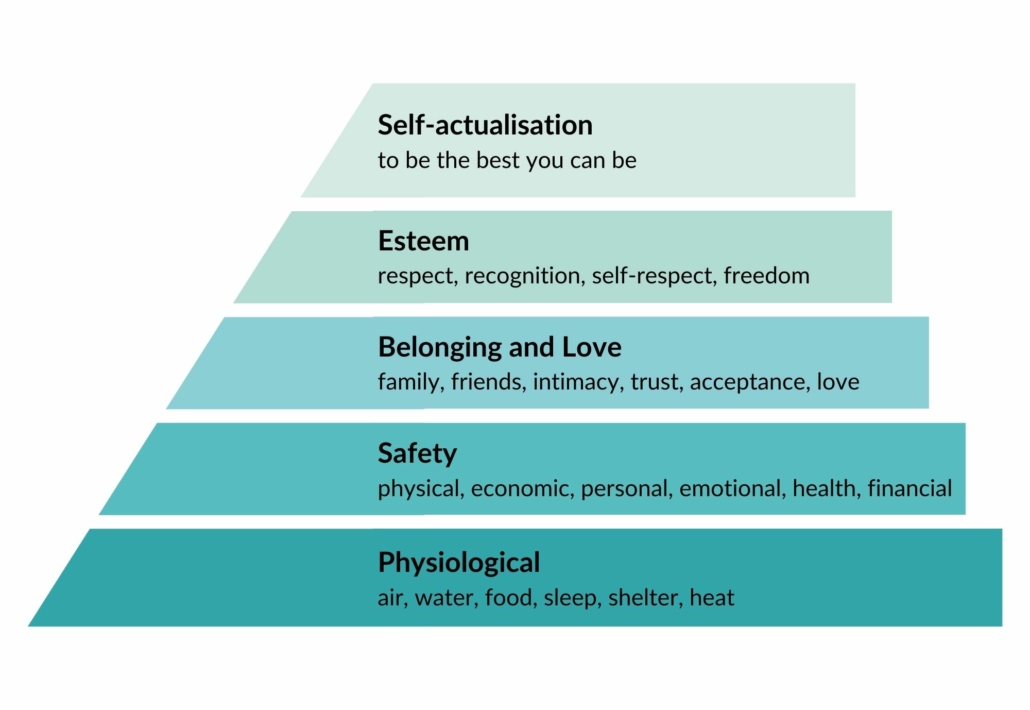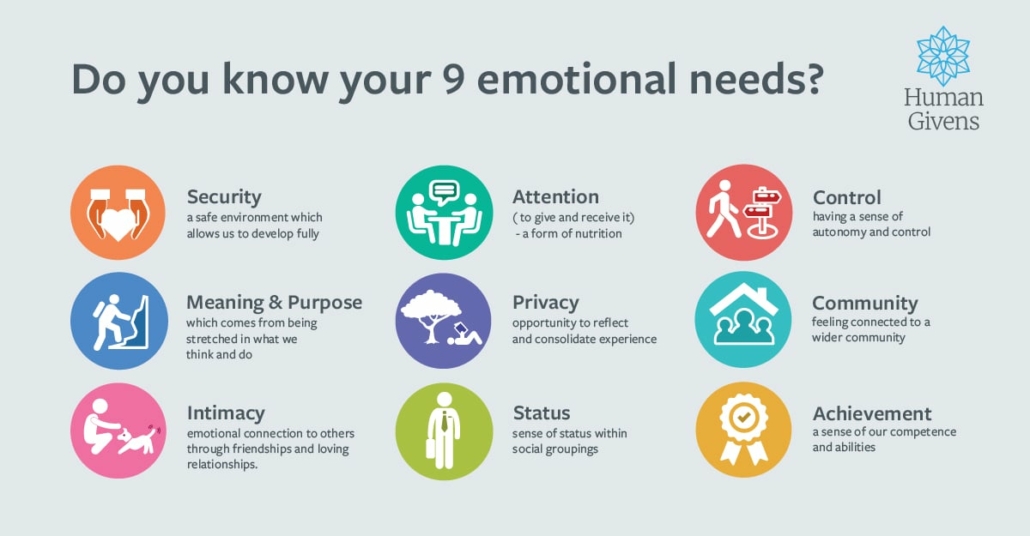IDENTIFYING NEEDS
In lesson 3, you learned about motivation, and you learned that one of the factors that affect our internal motivation is our needs. There are different types of needs, including physiological (eating, sleeping), psychological (autonomy, mastery, belonging), emotional, etc. And all needs are born out of either a deficiency, meaning that you are missing something, or a need for growth.
In the course so far, as you’ve been thinking about your vision, attachment style, and love language, you have started to identify what some of your needs are.
There is a lot of theory on needs, from Maslow’s hierarchy of needs to self-determination theory to the Human Givens model. This research has attempted to identify what we need to be happy and healthy and how not having our needs met affects our wellbeing.
Maslow’s hierarchy of needs
No discussion about needs would be complete without mentioning Maslow’s hierarchy of needs, developed by psychologist Abraham Maslow in his paper “A Theory of Human Motivation” (1943), which outlines a prioritised structure of universal human needs. The hierarchy comprises fundamental deficiency needs at the bottom and growth needs at the top. Deficiency needs must be met in order to have the motivation to focus on higher-level needs.

Since Maslow’s groundbreaking work, extensive research has explored human well-being. The UK’s Whitehall Study led by Sir Michael Marmot, linked mental and physical health outcomes to the fulfilment of emotional needs, revealing that factors like autonomy and social support impact health. And in the U.S., research by psychologist Martin Seligman identified universal emotional needs that when met allow for a fulfilling life.
The Human Givens approach, formulated by Joe Griffin and Ivan Tyrrell, defines nine key emotional needs that affect our mental health.

Use the worksheet to help you think about all the different types of needs you might have, which ones are most important to you, and how these needs are currently being met.
Research shows us that in relationships, although we may think that our needs are similar, often, what is a primary need for one person is not important for the other. So, unless we communicate our needs, it’s hard for our partner to understand what they are, and vice versa. Understanding what our partner needs adds empathy to the relationship, regardless of whether the needs can be met, as it makes us feel heard.
Reflection
- What insights did I gain from this topic or exercise?
- Did I find it easy or difficult to identify my needs? Why?





